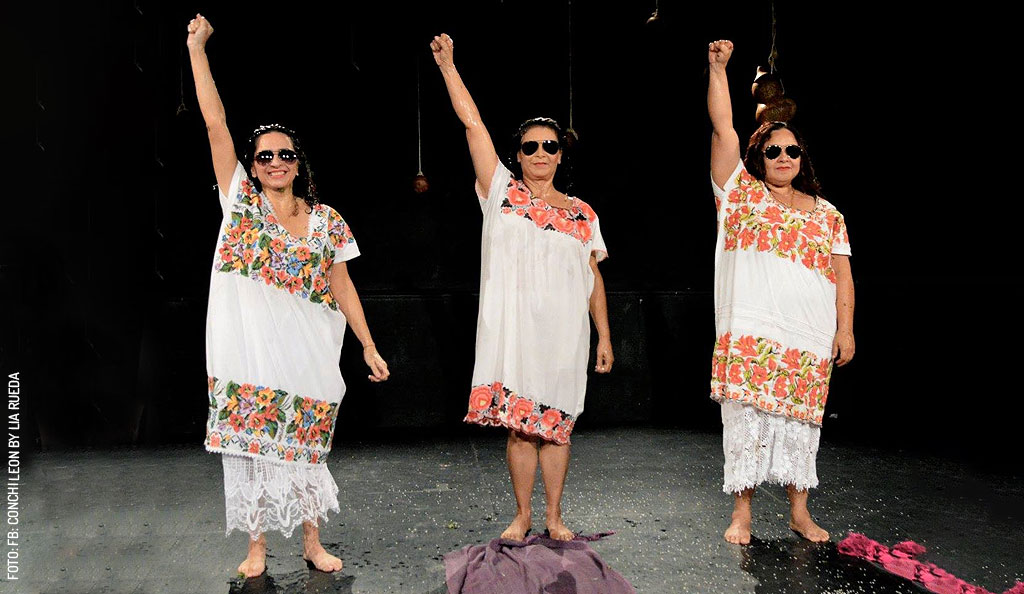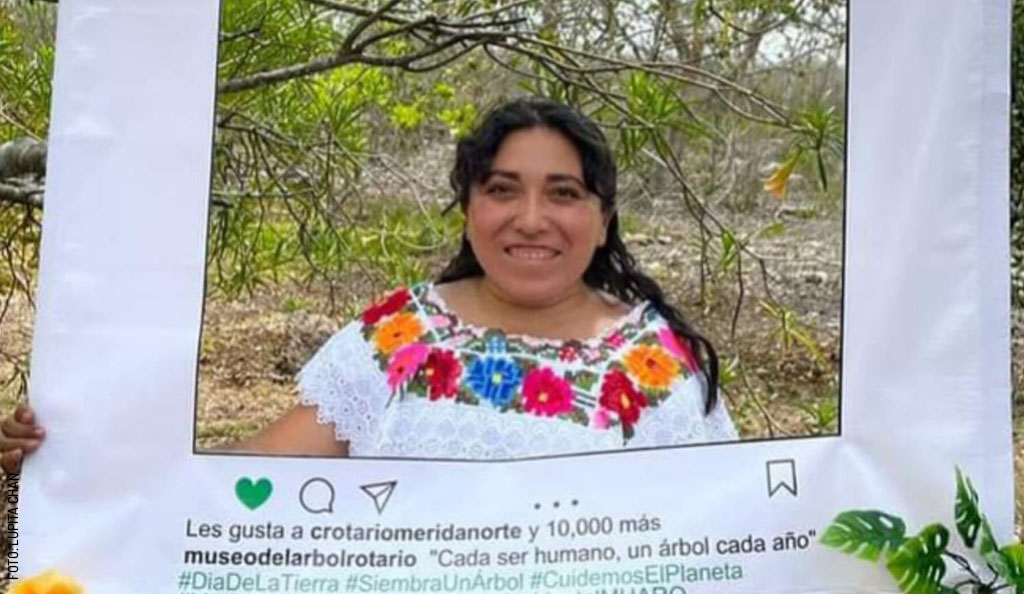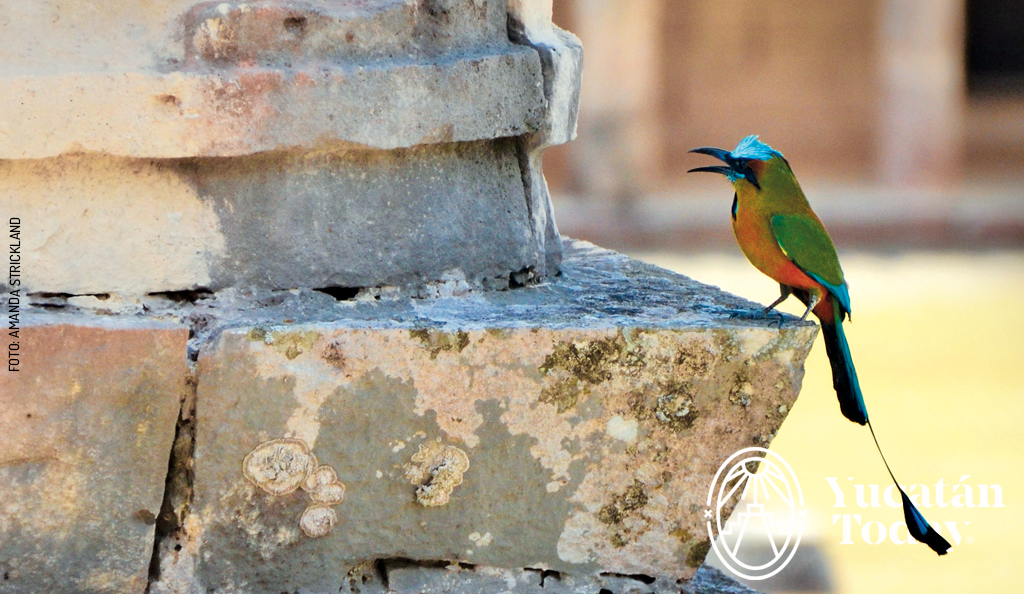
Conchi León: The Most Powerful Mestiza in Yucatecan Theater
There is no doubt that Yucatán is fertile ground for the development of great artists. The state has a wide repertoire of dancers, musicians, and writers who have captivated audiences with their imagination and talent. Following this tradition, in recent years, the name Conchi León has stood out in the world of theater for her extraordinary ability to tell profoundly Yucatecan stories that, with humor, invite reflection, questioning, and an appreciation for traditions.
Origins: A Love for the Performing Arts

Conchi's love for dramatic arts emerged at an early age. As a child, her mother enrolled her in folkloric ballet classes to improve her physical condition. However, between lessons, she would peek into the theater workshops being held at the same school, which she found much more attractive than dancing. It wasn't until she was 15 that she was able to take her first acting courses, enrolling at the IMSS Social Security Center. There, she was instructed in interpretation, pantomime, and corporal expression by the great Yucatecan mime Pastor Góngora.
It was this teacher who gave her her first professional opportunities, inviting her to join the company Teatro Búsqueda (Search Theater), where she participated in children's plays like "Puss in Boots" and "Little Red Riding Hood," presented at the theater of the Lic. Ignacio García Téllez Hospital.
From Teacher to Playwright
Passionate about education, she trained as an English teacher and studied pedagogy. In the mid-nineties, she was a theater teacher at institutions such as Colegio Educrea and the Centro Cultural del Niño Yucateco (CECUNY) (Yucatecan Children's Cultural Center). It was at the latter that she began to write, encouraged by her students who asked for more serious and less childish scripts for their classes.
Taking this new facet seriously, Conchi trained as a playwright by attending workshops at the Telón Abierto festival in Aguascalientes, taking classes with authors like Gilda Salinas, and participating in programs by the INBA, Paso de Gato, and the Royal Court of London. These processes led to works such as “El puerto de los abandonados” (The Port of the Abandoned) and “Todo lo que encontré en el agua” (Everything I Found in the Water), which address important themes like abandonment and Alzheimer's.
"Mestiza Power": A Milestone in Regional Theater
The work that catapulted her to fame was “Mestiza Power,” a play that portrays the lives of Indigenous Maya women vendors in the center of Mérida from an empowered perspective. This work marked a turning point in regional theater, as it broke with the tradition of male actors interpreting female characters in a mocking way. Its success led to presentations in Mexico, Spain, the United States, and Peru, and it was translated into English by The Lark Play Development Center. Thanks to this play, Conchi founded her own company: Sa’as Tun, which means “stone of light.”

Conchi León, with a Global Reach

In addition, her writing has addressed realities outside of Yucatán, such as in “La espera” (The Wait), based on testimonials from women inmates at the Santa Martha Acatitla prison in Mexico City, and “Comala, Comala,” a musical adaptation of “Pedro Páramo” presented at the Edinburgh Festival.
All this hard work has led her to be part of the Sistema Nacional de Creadores de Arte (National System of Art Creators), to complete artistic residencies in New York and Argentina, and to present her works in countries like Germany, Hungary, Canada, and the Philippines. She also received the “Héctor Herrera Cholo” medal for her contributions to Yucatecan theater. Without a doubt, Conchi's work has not only transformed regional theater but has also helped to raise awareness about the situation of various vulnerable groups. With each script, she reaffirms her place as one of the most influential playwrights in contemporary Mexico.
How to Experience Conchi León's Work
If you want to enjoy her talent from the comfort of your hammock, you can watch her on television in “Operación Mamut” (Canal 11), “Cecilia” (Paramount+), and “Los Gringo Hunters” (Netflix). Alternatively, you can visit her new project in the south of Mérida: the Centro Comunitario y Holístico “Cenobia Mora” (Cenobia Mora Community and Holistic Center), which will offer theatrical performances and dinners prepared by local women later this year.
IG: laconchileon
FB: Conchi León
First published in Yucatán Today print and digital magazine no. 453, in September 2025.

Author: Carlos Argüelles
Fashion designer and cultural agent. Lover of art, history, coffee, and Yucatecan gastronomy.
In love with Yucatán? Get the best of Yucatán Today in your email.
Don't miss our best articles and the monthly digital edition before anyone else.
Related articles

The Poetry of a Maya Woman: Lupita Chan
Everyone has a language of their own, which means that everyone can create poetry. Among those who make and work with words are the strong,...
WAY: Week of Art Yucatán 2026 – Essential Guide to Mérida's Art Week
Discover WAY: Week of Art Yucatán. Explore Mérida’s contemporary art scene, gallery tours, and top venues like Salón Gallos. Your complete guide to...




